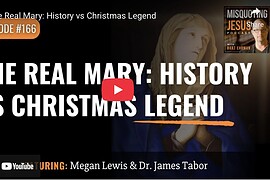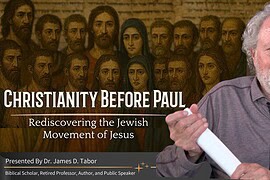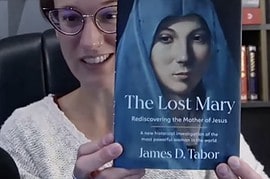In 1965 I well remember the publication of British biblical scholar Hugh J. Schonfield’s controversial and best-selling book, The Passover Plot. I like millions of others read it avidly and followed the controversies closely. I remember traveling on a flight just after it came out and seeing half a dozen people reading their copies of The Passover Plot. I think it ended up selling over 2 million copies. I still have my well worn original copy with its arresting book jacket pictured below. The book’s appearance was quite a phenomenon. It was later made into a film, which unfortunately was quite poorly done and wholly disappointing.
I could never agree with the central thesis of the book–that Jesus, convinced that he was the Suffering Servant figure of Isaiah 40-53, self-consciously went about orchestrating both his crucifixion and survival of the cross. He appeared to be “dead” but what he experienced was more like a “near death,” experience, echoing many of the themes of the Psalms of one entering the very throes of death but then being revived by God’s mercy. Psalm 22 would be a prime example of this pattern of acute suffering followed by vindication and deliverance–and according to Mark, our earliest source, Jesus recited this Psalm as he sunk into unconsciousness at the cross.
What I loved about the book was the way it so vividly recreated the “life and times” of the historical Jesus, and highlighted the Messianic ideas that were so powerfully operative in late second Temple times. It was a real thrill to read and one was caught away into another time and place. I think for me it was my first real experience of thinking more “historically” about the figure of Jesus. I was in college at the time, majoring in Greek, Bible, and History–and I was decidedly in the evangelical Christian camp–so the book was a jolt and a tantalizing invitation to explore things further.

In 2004 a 40th anniversary edition of the book was published and it is still available. So while I do not agree in the end with Schonfield’s central theory, I do, however, highly recommend the book both for its gripping narrative of the social and political “messianic” contexts in which Jesus lived and died. Schonfield followed up in 1968 with another book, Those Incredible Christians, that I think has never been equaled. When people ask me theological questions about what I really believe about Jesus–usually coming from an evangelical background, I always tell them–let’s get together and talk about that–but only after you have first read Those Incredible Christians! That along with Schonfield’s Authentic New Testament are treasured volumes in my personal library.
There is an fascinating interview on Youtube with Hugh Schonfield recorded in 1967 on the Long John Nebel Show in sharp dialogue with Christian apologist Walter R. Martin and others. One is able to hear Schonfield’s calm, professional, and engaging manner of presenting his case, which is in sharp contrast to Martin and other guests, who get quite exercised over the topic. It makes some good listening and captures some of the religious dynamics of the 1960s that included the controversial ideas of Bishop Pike, Thomas Altizer, and Bishop John Robinson. Those were truly the days! Don’t miss this one. You can hear it in its entirely here: Interview with Hugh Schonfield 1967
On a personal note, Hugh Schonfield died in 1988. I never met him but it was my privilege to carry on a lovely correspondence with him by post during my graduate school days at the University of Chicago in the early 1970s. He was one of the most gracious individuals I have ever had the pleasure of knowing and I was quite taken, and still am, with his ideas expressed in The Politics of God, one of his last works, which has now been republished. I also highly recommend Owen Power’s wonderful dissertation on Hugh Schonfield, now published as a lovely book, Hugh Schonfield: A Case Study of Complex Jewish Identities. My friend Greg Doudna traveled to the UK and interviewed Schonfield in his London flat in 1985. His notes on that extended conversation, which he has given me permission to publish are fascinating. Schonfield’s work is now being carried on via the Schonfield World Trust Service which seeks to promote his vision of a “Messianic Servant Nation,” an idea he developed from the inspiration of studying the historical figure of Jesus.
DoudnaSchonfield








Comments are closed.